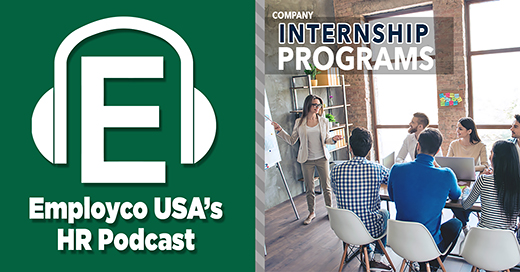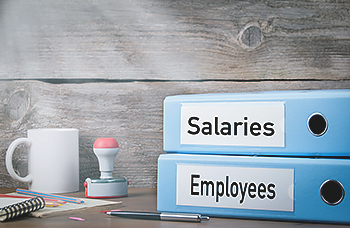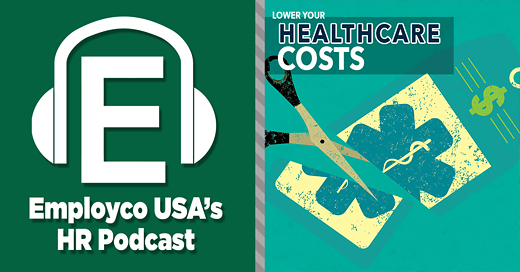H.R. expert explains how companies should approach hiring student interns
With fall approaching and school commencing, many college students will be considering a fall internship. However, companies who are considering hiring student interns need to be careful about how they proceed with this arrangement.
 “Interns can no longer be used as free labor,” says Rob Wilson, human resources expert and President of Employco USA, an employment solutions firm. “It is crucial that the intern can be shown to benefit as much from the arrangement as the company itself.”
“Interns can no longer be used as free labor,” says Rob Wilson, human resources expert and President of Employco USA, an employment solutions firm. “It is crucial that the intern can be shown to benefit as much from the arrangement as the company itself.”
Wilson explains that companies who are considering interns should consider not only how these workers would benefit them, but how the experience itself can benefit the intern. “Students will need to be able to prove that their time with your firm is educational and applicable to their chosen major,” says the H.R. expert.
Furthermore, says Wilson, companies will need to budget for these interns.
“The days of free internships are pretty much over,” says Wilson. “There is a very thin margin of internships where it is still okay for a worker to receive no financial compensation, but we advise all of our clients to pay their interns. It’s a good business practice and one that will be beneficial for you in the long run.”
Wilson also says that hiring interns will bring a fresh perspective and a new outlook to companies.
“When you bring the next generation into your workplace, you are going to enjoy the benefit of their unique outlook and fresh take on issues in your industry,” says Wilson. “Student interns should be a win-win for both you and them, provided you take the needed steps to make sure the program is run effectively and managed well.”
For more on this topic, you can listen to Employco USA’s HR Podcast entitled, “Company Internship Programs.”

Contact us with any questions you may have, we’re here to help: hr@employco.com
 Rebecca Ceja, HR Coordinator – a large portion of her responsibilities include providing 2 days of onsite human resources support for one of Employco’s clients at their headquarters in Itasca, Illinois. The other 3 days per week will be at Employco’s office in Westmont, Illinois, providing offsite support as well as HR responsibilities for several other Employco clients.
Rebecca Ceja, HR Coordinator – a large portion of her responsibilities include providing 2 days of onsite human resources support for one of Employco’s clients at their headquarters in Itasca, Illinois. The other 3 days per week will be at Employco’s office in Westmont, Illinois, providing offsite support as well as HR responsibilities for several other Employco clients. Blue Cross Blue Shield is proposing premium cuts in many states across America for 2019, with some states seeing as much as a 5% decrease or more. However, there could be more to this story than meets the eye.
Blue Cross Blue Shield is proposing premium cuts in many states across America for 2019, with some states seeing as much as a 5% decrease or more. However, there could be more to this story than meets the eye. “Interns can no longer be used as free labor,” says Rob Wilson, human resources expert and President of Employco USA, an employment solutions firm. “It is crucial that the intern can be shown to benefit as much from the arrangement as the company itself.”
“Interns can no longer be used as free labor,” says Rob Wilson, human resources expert and President of Employco USA, an employment solutions firm. “It is crucial that the intern can be shown to benefit as much from the arrangement as the company itself.”

 A
A  According to the most recent data, premium healthcare plans for individuals in 2019 will increase by 15 percent in many states across America. As the Affordable Care Act continues to be in flux, employers are very concerned about how they can help keep healthcare costs down.
According to the most recent data, premium healthcare plans for individuals in 2019 will increase by 15 percent in many states across America. As the Affordable Care Act continues to be in flux, employers are very concerned about how they can help keep healthcare costs down. Rob Wilson,
Rob Wilson,
